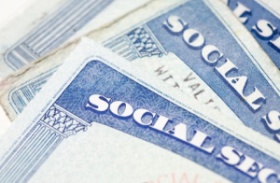At the head of the Social Security Administration is the Commissioner of Social Security. About…
What benefits does Social Security pay to the disabled? Disability Attorneys Supplemental Security Income and Disability Insurance Benefits
 There are generally two different types of Social Security Disability Benefits available under the Social Security Act. One kind is called Supplemental Security Income (SSI). This type of benefit is available to individuals who are disabled and who have limited finances. SSI only pays a disabled person a maximum of $750 per month. This figure is further reduced when an SSI recipient has other household income- including other disability payments- see below, assets, or receives financial assistance from family or friends.
There are generally two different types of Social Security Disability Benefits available under the Social Security Act. One kind is called Supplemental Security Income (SSI). This type of benefit is available to individuals who are disabled and who have limited finances. SSI only pays a disabled person a maximum of $750 per month. This figure is further reduced when an SSI recipient has other household income- including other disability payments- see below, assets, or receives financial assistance from family or friends.
The other type of disability under the Social Security Act is called Disability Insurance Benefits (DIB). This benefit is paid to disabled individuals who qualify on their tax record. Generally speaking, you must pay enough into Social Security in 20 out of the previous 40 quarters of a year (essentially five of the last 10 years) from the date that you are alleging disability in order to qualify for this benefit. In order to obtain a quarter of coverage in 2018 you must pay Social Security taxes on at least $1,320 of wages. The money Social Security pays to a disabled worker under DIB can be minimal (under $100 per month) up to around $2,700 per month depending on how much Social Security taxes a disability claimant has paid into the system.
When a disabled person stops paying into the system they gradually become uninsured for benefits under DIB. If a disabled individual has not paid enough into the system in 20 out of 40 quarters, then they are no longer presently insured for benefits. This means that they will have to prove that they became disabled at some point into the past when they had in fact paid enough into the system. The point in time when an individual had last paid enough into the system in 20 out of the previous 40 quarters is called a date last insured. The date last insured is the date in which a disability (DIB) claimant must prove their disability (inability to work) began in order to be entitled to benefits under DIB (on their work record). The more remote your DLI, the more difficult it will be to prove your case. This is because your case will need to be based largely on old evidence rather than current evidence. The older a DLI, the more likely there will be fading memories, destroyed documentation, difficulties obtaining documentation, and problems obtaining medical opinions for the relevant time frame.
Even if you have a remote DLI, you can still obtain Social Security benefits. If you have a concurrent SSI claim (a claim based on financial need) you can still rely on recent information for that type of benefit. Moreover, even though it is difficult to win a case with a remote DLI, it can still be done with the right documentation, legal arguments and preparation.
If you believe that you have been unable to work because of your health, please give our office a call for a free consultation. We would be happy to discuss with you your options for SSI and/or DIB.



This Post Has 0 Comments